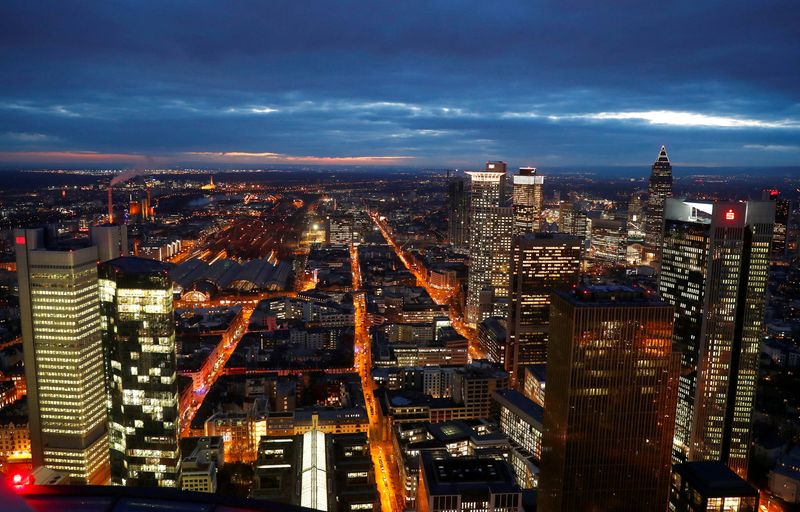BERLIN (Reuters) -German investor sentiment plunged below levels at the outset of the coronavirus pandemic in July due to major energy concerns, supply bottlenecks and rate hikes from the European Central Bank.
The ZEW economic research institute said on Tuesday its economic sentiment index fell to -53.8 points from -28.0 in June. The July figure is slightly below the values seen in March 2020, when Germany saw its first pandemic-related closures.
A Reuters poll had pointed to a July reading of -38.3.
The index, for which the ZEW polled 179 analysts and institutional investors from July 4-11, showed that expectations for energy-intensive and export-oriented sectors fell particularly sharply, according to ZEW President Achim Wambach.
"Experts assess the current economic situation significantly more negatively than in the previous month and have further lowered their already unfavourable forecast for the next six months," he added.
An index for current conditions fell to -45.8 from -27.6. The consensus forecast was for a reading of -34.5.
Concerns about a recession are growing, said analysts.
"Fear has taken the wheel," said Alexander Krueger, chief economist at the private bank Hauck Aufhaeuser Lampe.
"The threat of a stop to gas deliveries and the strong drop in real wages in particular are leading to the blues," he said, adding that concerns about a recession will continue to grow as long as a potential gas supply freeze continues to loom.
The Nord Stream 1 that carries Russian gas to Germany began annual maintenance on Monday, with flows expected to be halted until July 21, but governments, markets and companies are worried the shutdown might be extended due to war in Ukraine.
German Economy Minister Robert Habeck warned earlier this month that the current energy shortage could lead to a recession in Germany and a credit crunch that would threaten the country's economic strength.
